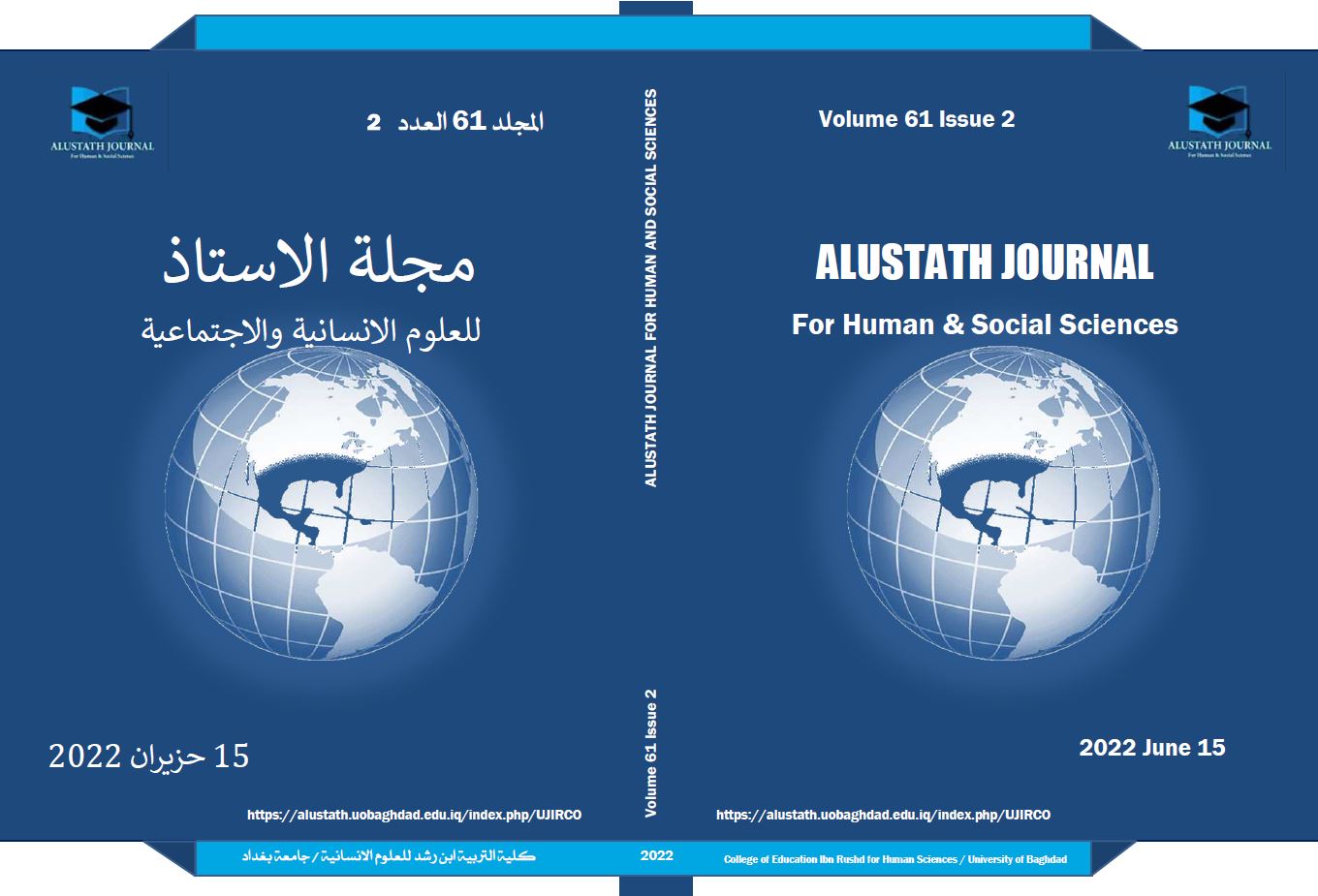The Effect of Reciprocal Teaching Strategy on the Fourth Preparatory School Students’ Reading Comprehension Performance and Retention
DOI:
https://doi.org/10.36473/ujhss.v61i2.1291Keywords:
reciprocal teaching, reading comprehension, performance, retention. Abstract
There are two aims in the present study. The first is to find out the effect of reciprocal teaching strategy on reading comprehension performance of EFL preparatory school students. The second is to check out the effect of the same strategy on Students’ retention of the reading texts. This study is limited to the fourth scientific preparatory school students in the city of Ramadi during the first course of the academic year 2019-2020. Two hypotheses are set. The first assumed that there is no significant difference between the mean score of the experimental group and the mean score of the control group in the post reading comprehension performance test at the level (0.05) of significance. The second hypothesis states that there is no significant difference in the mean scores of the reading retention test between the experimental group and the control at the (0.05) level. The selected sample includes 72 students who have been selected randomly. The sample is distributed over two groups (36 for the experimental group) and (36 for the control group) after equalizing. The experimental group is taught reading comprehension material according to reciprocal teaching method. The researcher depends on a reading comprehension test to be the main instruments for collecting data and has been exposed to jury members. After the final applications of both tests, results concerning the first hypothesis show that there is a significant difference in the mean scores of the performance test between control and experimental group in favour of the experimental group. Also, the results about the second hypothesis reveal that there is a significant difference in the mean scores of the reading retention test of the experimental group upon the control group. Finally, conclusions and recommendations are set.
Downloads
References
- Al – Seliti, F. M. (2014). The Effect of the Strategy of Reciprocal Teaching in Developing Reading Comprehension Skill of the Fifth Basic Class in Jordan. The Journal of the Educational and Psychological Sciences. 15(2), 1262-4264.
- AlSaraireh, M. Y. (2016). The Effect of the Reciprocal Teaching Model on Developing Jordanian Students' Reading Comprehension at Mutah University. Malaysia, International Journal of Linguistics., 8 (6), 1948-5425
- Annajar, N. J. S. (2010). Measurement and Evaluation: An Applied Perspective with the SPSS Applications. The Hashemite Kingdom of Jordan, Al-Hamed House for Publishing and Distribution.
- Bdul-Bari, M/ S. (2010). Reading Comprehension Strategies: Their Theoretical Foundations and their Practical Applications. (1st ed.) Amman, Al-Maseerah House for Publishing, Distribution and Printing.
- Van Blerkom, M. L. (2009). Measurement and statistics for teachers. New York, NY: Routledge. Van Blerkom, M. L. (2009). Measurement and statistics for teachers. New York, NY: Routledge.
- De Messieres. (2016). English for Iraq. UK: Garnet Publishing Ltd.
- Hadley, A. O. (2003). Teaching Language in Context. (3rd ed.), USA, Heinle & Heinle Publishers, Inc.
- Hartman, H. J. (2001). Developing students’ metacognitive knowledge and skills. Metacognition in learning and instruction, 33-68.
- Hussein, M. S. (2007). Reciprocal Teachin. A working paper. The First Teachers Forum for Islamic Culture and the first field in private schools.A forum held in Cairo University, Egypt- 9 November.
- Jad, Mohammed Lotfi Mohammed. (2007). Strategies of Developing Thinking Skill through Arabic Language. Tawasel Journal. Volume 8, P.P 28-35.
- Khaleeliya, M. A. (2016). ''The Effect of Reciprocal Teaching on the Achievement of the Ninth Basic Class in the Grammar of Arabic Language and on the Motivation towards Learning Arabic in Jenin Governorate''. Unpublised M.A. Thesis. Al Najah National University. Palestine.
- Ningsih, A. A. (2009). ''Using Reciprocal Teaching Method in Teaching Reading Comprehension''. Unpublished. M.A. Thesis. Maulana Malik Ibrahim State Islamic University of Malang, Arabic Language Department. Indonesia.
- Padma, B. (2008). Reciprocal teaching techniques. APH Publishing.
- Palinscar, A. S., & Brown, A. L. (1984). Reciprocal teaching of comprehension-fostering and comprehension-monitoring activities. Cognition and instruction, 1(2), 117-175.
- Pallant, J.(2010) SPSS Survival Manual. 4th ed. England, McGraw-Hill Education.
- Richards, J. C., & Schmidt, R. W. (2013). Longman dictionary of language teaching and applied linguistics. Routledge.
- Routman, R. (2000). Conversations: Strategies for Teaching, Learning, and Evaluating. Heinemann, 361 Hanover Street, Portsmouth, NH 03801-3912.
- Siddiqui, M. H. (2008). Models of Teaching. A P H Publishing Corporation.
- Wiseman, D. L. (1992). Learning to read with literature. Allyn & Bacon.
- Brown, H. D., & Abeywickrama, P. (2010). Language assessment: Principles and classroom practices (Vol. 10). White Plains, NY: Pearson Education.












